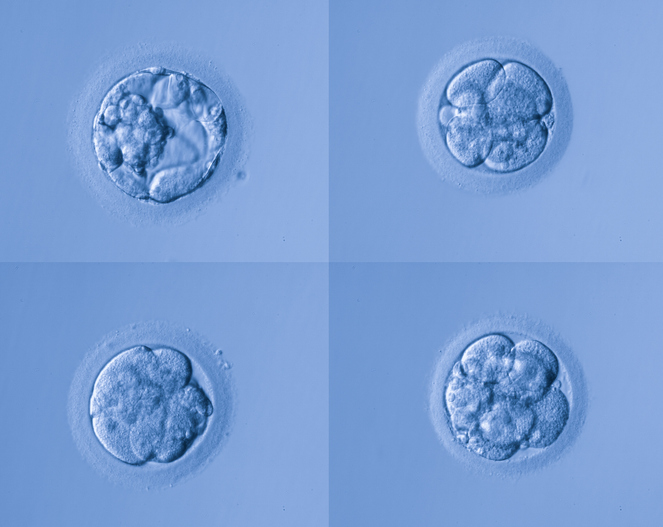.png)
.png)
Egg donation is something that can help build families and change lives. It is also a complex process with emotional, ethical, and long-term implications. Whether you are considering becoming a donor, receiving donated eggs, or simply wanting to better understand the process, it is essential to think about and understand the ethical landscape surrounding egg donation.
As a fertility psychologist with years of experience working closely with both egg donors and recipient families, I’ve had countless conversations about the emotions, questions, and concerns that come up throughout this journey. In this article, I’ll walk you through some of the key ethical considerations that I discuss in my practice—from informed consent and compensation to identity issues and emotional wellbeing—so that you can make thoughtful, empowered decisions.
Understanding informed consent in egg donation
Informed consent in egg donation means that a donor fully understands the entire donation process including the potential medical, emotional, and legal outcomes. To have full informed consent, a donor must have enough time, support, and accurate information to make a decision regarding donating.
During my psychological consultations, the majority of our time is spent on the emotional, ethical, and identity-related considerations. The donor is given time to process and come back to me at any time for further questions before committing to donating her eggs. I also want her to feel empowered to advocate for herself and to say no at any time during the process.
The same goes for recipients, during our consultations we discuss many things such as disclosure, and the potential implications for their future children and give them resources and ample time to feel confident in their decisions as they move forward.
The ethics of compensating egg donors
Traditional agencies/clinics use a payment model for their donors. From an ethical perspective, when payment is high, particularly in areas where egg donors are in high demand, it can blur the line between a choice freely made and one influenced by finances. Ethical frameworks such as those set by ASRM, urge that compensation reflects time, effort, and discomfort, but not so much that it overshadows careful consideration. Agencies and clinics have a responsibility to assess whether a donor is truly comfortable and free from coercion because of the emotional, ethical, and long-term implications of egg donation. This is why psychological evaluations and counseling are so critical, not as gatekeeping, but as protection.
Another model has emerged for donors called egg sharing, where an egg donor undergoes an egg retrieval and the resulting eggs are divided between the donor and a family that could not otherwise conceive. This model offers a unique opportunity to help another family grow while giving the donor the chance to invest in their own reproductive future at the same time. Learn more about Cofertility’s unique egg sharing model.
Moving toward openness in egg donation
For decades, egg donation was typically anonymous. Today, that is changing fast. Increasingly, countries are banning anonymous donation or encouraging donors to be "open-identity" meaning that donor-conceived individuals can access identifying information when they reach adulthood. DNA testing and online databases have made guaranteed anonymity virtually impossible anyway.
From an ethical standpoint, children have a right to understand their biological origins, and secrecy can create confusion, mistrust, or even identity issues later in life. However, not all donors are comfortable with future contact, and that should be respected too. It is a delicate balance, and one that all parties should consider carefully before proceeding.
Emotional and identity-related complexities
Egg donation brings up powerful questions about psychological ownership, not just in terms of biology, but emotional connection. Some donors later wonder about the children born from their donation: Are they okay? Do they look like me? Should I feel something deeper? For some, it is a passing thought. For others, it becomes a lasting emotional thread.
Similarly, donor-conceived individuals may wrestle with questions of identity, especially in adolescence. Recipients, too, may grapple with complicated feelings, joy, gratitude, and sometimes grief over the loss of a genetic link. All of this is valid, and it underscores the need for emotional preparation and post-donation support.
Planning for disclosure and future conversations
Donors often ask: How do I explain this to a current or future partner? To my own children? Even if a donor chooses not to disclose initially, future DNA technologies may make that decision moot. So it is important to really think about this. For recipients, thinking ahead about how and when to talk to their children about their origins is part of ethical parenting. Honesty, age-appropriate openness, and early disclosure are associated with better long-term outcomes for donor-conceived children.
The importance of feeling supported
Studies generally show that most egg donors do not regret their decision. Many describe it as rewarding, meaningful, and empowering, especially when they feel respected, well-informed, and supported throughout the process.
However, some do report mixed or negative emotions, particularly when:
- They weren’t fully informed
- They felt pressured or rushed
- They were promised anonymity that was later broken
- They experienced complications or felt emotionally unprepared
These outcomes highlight how important it is to treat egg donation as more than just a transaction. It is a human experience that deserves deep care, attention, and ethical rigor.
Egg donation is a remarkable act, but it is not one to rush into. Whether you are donating, receiving, or simply reflecting, take the time to ask hard questions, seek psychological support, and explore all angles of the decision.
Egg donation with Cofertility
At Cofertility, we are striving to be the best place to be an egg donor (or what we call, a Split Member). We offer a supportive and transparent process that empowers donors to make informed decisions about their egg donation journey.
With our innovative approach, donors get to keep half of the eggs retrieved, plus:
- Free storage of their own eggs in cryopreservation for up to 10 years
- Coverage of all medical costs for the egg donation process
- Connection to the Cofertility community for support all along the way and after too
- The ability to work with the intended parents to decide together what your relationship will look like
If giving your eggs to intended parents sounds like something you would like to do, you may be able to qualify for the free egg freezing process and have your donation process covered too.
Find out more about Cofertility, and take our quiz to see if you qualify for Split!
We believe that every donor deserves to have a positive and empowering experience, and we are committed to making that a reality. That’s why Cofertility was named one of the Best Egg Donor Programs by Egg Donor Connect.
Resources
ASRM (American Society for Reproductive Medicine)
Website: www.asrm.org
Mental Health Professionals Group (ASRM affiliate)
Website: https://connect.asrm.org/mhpg/home
We Are Egg Donors
Website: www.weareeggdonors.com
Donor Sibling Registry (DSR)
Website: www.donorsiblingregistry.com
The Center for Bioethics and Culture (CBC)
Website: www.cbc-network.org





.png)




